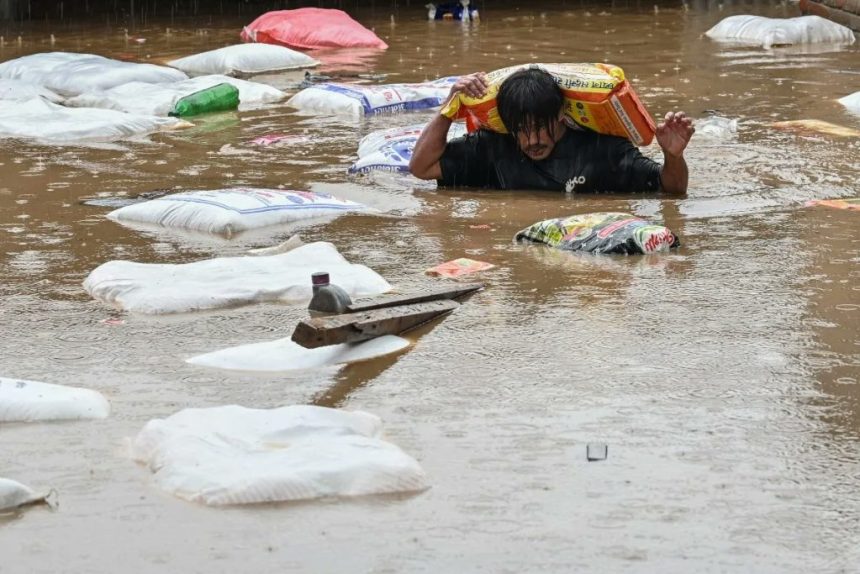The United Nations (UN) Central Emergency Response Fund (CERF) has disbursed an additional US$5 million to intensify flood relief efforts in Nigeria, focusing on the three most affected states: Borno and Bauchi in the North-east, and Sokoto in the North-west.
This move, announced by the UN Office for the Coordination of Humanitarian Affairs (UNOCHA), comes as the nation grapples with worsening floods that have severely impacted lives, livelihoods, and food security, particularly during the peak of the rainy season.
According to UNOCHA, the humanitarian crisis has claimed over 300 lives so far this year. The agency warned of numerous health hazards, including the outbreak of cholera, and pointed to the millions of Nigerians already facing critical food shortages. At least 1.2 million people across 31 states have been affected by the floods, with vast areas of farmland destroyed just before the harvest season.
UN Resident and Humanitarian Coordinator in Nigeria, Mohamed Fall, emphasized the compounded nature of the crisis, noting that many Nigerians were already suffering from severe food insecurity prior to the floods. “The floods have compounded people’s suffering,” Fall said, highlighting the economic challenges already plaguing vulnerable communities.

The Food and Agriculture Organization (FAO) estimates that crop losses in the flood-affected states of Borno, Adamawa, and Yobe could have fed 1.4 million people for six months. Nationwide, crop losses could feed as many as 8.5 million people over the same period, according to FAO.
CERF’s $5 million allocation is intended to provide vital assistance to 280,000 people in Borno, Bauchi, and Sokoto states. The funds will be used to provide food, clean water, sanitation, shelter, and healthcare, with an emphasis on preventing the spread of waterborne diseases like cholera. Additionally, multipurpose cash assistance and cash-for-work programs will help affected individuals earn an income during the recovery phase.
However, CERF and the Nigeria Humanitarian Fund (NHF) cautioned that these resources are still insufficient to meet the full scale of needs. They called on donors, development partners, and the private sector to urgently mobilize additional resources as the emergency response transitions to recovery in some regions.
Meanwhile, the Borno State Flood Relief Committee (BFRC) has enlisted 50 National Youth Service Corps (NYSC) members to participate in a property verification exercise in flood-affected areas. The corps members will assist in verifying the extent of the damage to ensure a thorough and professional assessment, as mandated by Governor Babagana Zulum.
During the launch of the training session in Maiduguri, BFRC Chairman Baba Bukar Gujbawu emphasized the importance of dedication to the verification task, urging the corps members to perform their duties with integrity. Co-chairman Prof. Ibrahim Umara also encouraged them to resist any form of bribery, assuring the corps members that adequate security measures were in place for their safety.
As Nigeria continues to battle the aftermath of the floods, the international community and local authorities are intensifying their efforts to alleviate the suffering of those affected. However, further support will be crucial in the months ahead to fully recover from the devastation.



